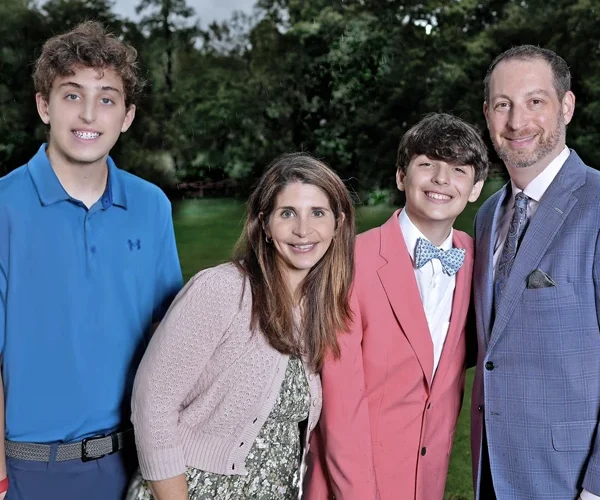By Jackie Yahr, Esq., Assistant Vice President, Charitable Planning, The Associated
How Election Results Should Shape Your Year-End Giving
2020 has been a tumultuous year to say the least. As you and your advisors sit down to discuss year-end tax and charitable planning, there are several additional factors this year that can influence key decisions. The COVID-19 pandemic continues to impact virtually all aspects of the economy; and the upcoming election is bound to bring changes to Washington that could result in significant changes to the income tax and the estate and gift tax regimes. States and local governments are facing unprecedented budget crises that could also lead to new or larger tax burdens.
While the outcome of the election will most likely impact the direction that tax policy will take in the coming years, there are still some key considerations for you to take into account for year-end decisions.
Tax rate considerations and the impact of recently-enacted legislation
The prospect of increased tax rates in 2021 could lead some to second-guess the tried and true year-end planning mantra of “deferring income and accelerating deductions” as a means to reduce the current year’s tax bill. Effective tax rates and the value of deductions could be worth more in 2021 if Congress does impose a tax increase next year. However, recently enacted tax legislation, as well as some other long-standing planning techniques could be beneficial in 2020.
- Planning ideas:
- The CARES Act, enacted to provide COVID-19 relief, contains a provision that enables a current deduction of up to 100% of your adjusted gross income for cash gifts directly to charity (other than to donor-advised funds, supporting organizations, and private foundations). Individuals considering large cash donations may find this one-year lifting of the AGI limitation to be beneficial.
- And the IRA charitable rollover remains an attractive way to give for those over age 70½ who may not otherwise be able to itemize their deductions and claim a tax benefit from a charitable contribution. Keep in mind that Congress has suspended the pension rules imposing “required minimum distribution” requirements for 2020, but rollover contributions to qualified charities could still make sense for those looking to reduce their taxable income this year.
Taxes on capital gains could rise dramatically
Capital gains taxes generally were reduced under the Tax Cuts and Jobs Act (TCJA) to 15% or 20%, depending on a taxpayer’s income level and the asset class. With an incumbent victory, the existing rates could remain static or even be reduced. Should there be a change in Administration, however, based on proposals that have been floated, taxes on capital gains could almost double to 39.6% for taxpayers earning more than $1 million.
- Planning ideas:
- With the possibility of a substantial increase in the capital gains tax rate, those with appreciated assets may want to consider donating appreciated assets to charity to take advantage of the larger deduction based on the fair market value of the asset at the contribution date, and thus avoid paying tax on the capital gains. Timing can be tricky as you may want to weigh the possibility of a large swing in value of stocks next year against a possible tax hike.
- Establishing a donor advised fund is a great way to take advantage of donating those highly appreciated assets and taking a large charitable deduction. Once donated, you can make your gifts to the charities you care deeply about on your own timeline, not the IRS’s.
Estate taxes are likely to increase
Under the TCJA, Congress increased the gift and estate tax exemption from $5 million to $10 million with inflation adjustments, bringing that amount to $11.58 million for this year. Individuals can gift up to this amount to family members and others without paying a dollar of tax during their lifetime. Anything left over can be used to offset estate taxes at death. The Democratic platform includes a proposal to reduce the gift and estate exemption to a level closer to pre-TCJA amounts of $5 million.
- Planning idea:
- It may make sense to make gifts to family members and others before year-end in order to take advantage of the higher exemption amount, since the IRS has determined that should a taxpayer take advantage of the expanded gift tax, it will not be held against them if the tax law reduces the gift tax exemption at a later date.
- Many assets have never been worth more, and thus it is better to give these assets to your family now, rather than at death. There are a number of estate planning techniques that can be utilized, including the option of transferring assets to a trust now that will make payments to charity over a prescribed term of years, after which time the assets will transfer over to your family. With interest rates at an all-time low, this type of trust is extremely attractive as it provides the opportunity pass substantial assets to the beneficiaries tax-free.
Whatever the outcome of the election may be, there are certainly a number of year-end planning techniques to take advantage of in order to maximize tax savings while continuing to support the charities that have been working overtime during the pandemic to assist those in need. The Associated’s professionals are ready to work with you and your advisors on ways to help maximize the financial and charitable benefits of any charitable planning strategies available to you.
For more information, contact Jackie Yahr at 410-369-9248 or jyahr@associated.org.
This is for informational purposes only and should not be construed as legal, tax or financial advice. When considering gift planning strategies, you should always consult with your own legal and tax advisors.
Subscribe to our newsletter
The Associated is a home for everyone in the Baltimore Jewish community. We offer several email lists to help people find a community, engage with their peers and support Jewish journeys around the world.
Join Our Mailing ListAdd Impact to Your Inbox
Sign up for our newsletter
Subscribe to our newsletter
The Associated is a home for everyone in the Baltimore Jewish community. We offer several email lists to help people find a community, engage with their peers and support Jewish journeys around the world.
Join Our Mailing List









 Please Wait while we loading your video.
Please Wait while we loading your video.